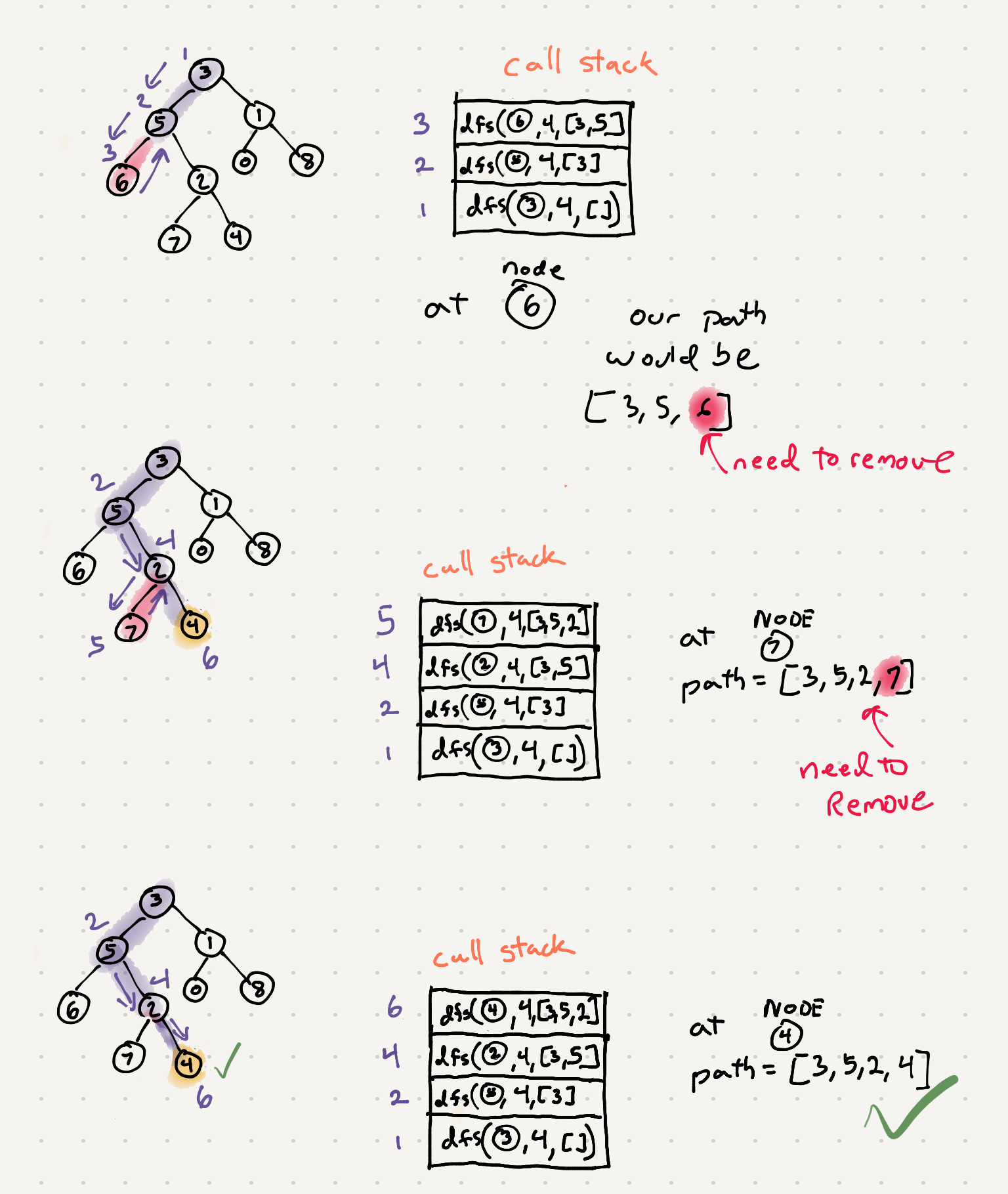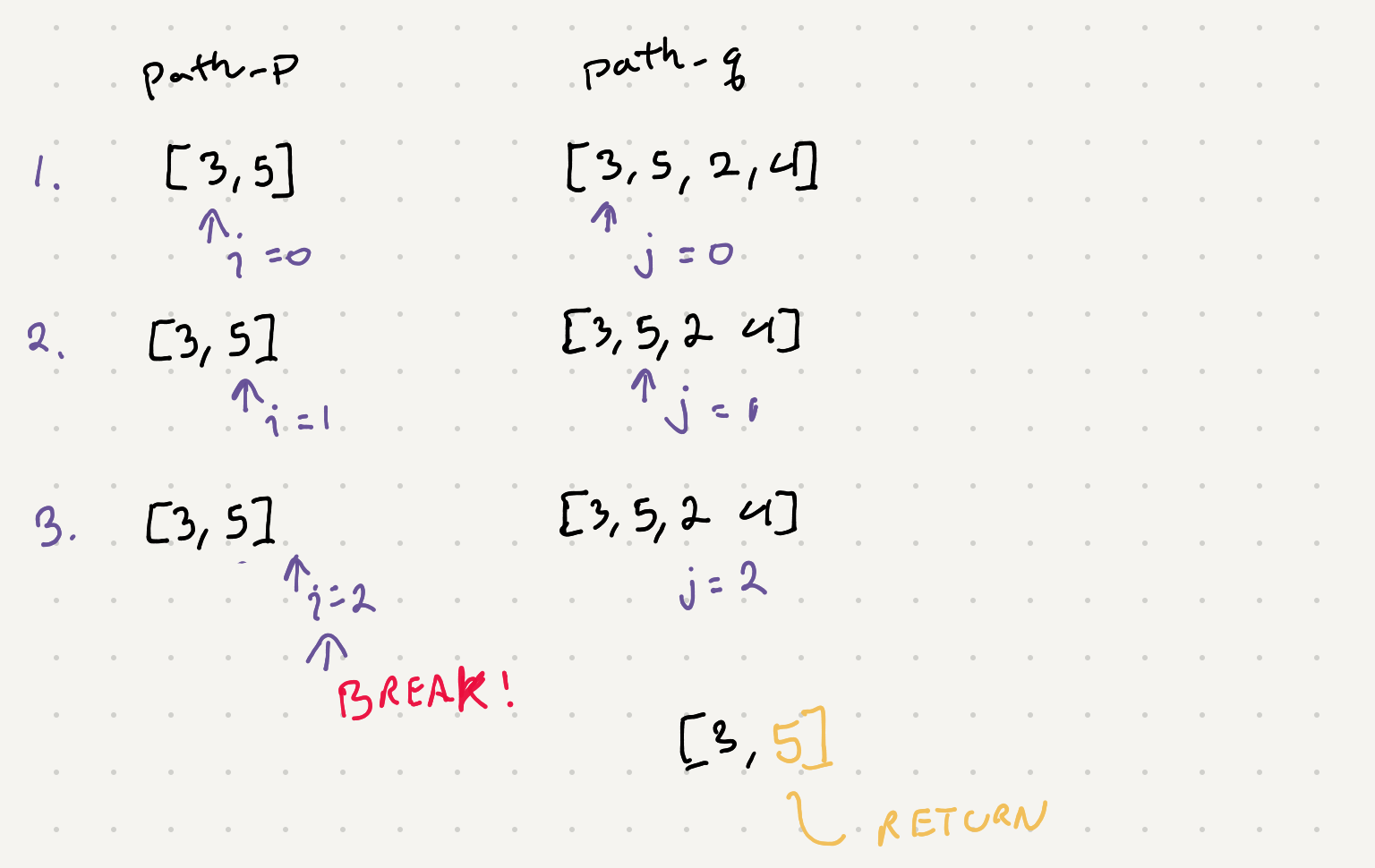Least common ancestor of a Binary Tree
Problem statement
Given a binary tree, find the lowest common ancestor (LCA) of two given nodes in the tree.
According to the definition of LCA on Wikipedia: “The lowest common ancestor is defined between two nodes p and q as the lowest node in T that has both p and q as descendants (where we allow a node to be a descendant of itself).”
All of the nodes' values will be unique. p and q are different and both values will exist in the binary tree.

So before we try to figure out the LCA let’s try to just solve the problem of finding a path to one of our targets. We can use a dfs algorithm and a seen array to track the path
def dfs_path(root, target, path_so_far):
if not root:
return True
path_so_far.append(root)
if root.val == target:
return True
left_found = dfs_path(root.left, target, path_so_far)
right_found = dfs_path(root.right, target, path_so_far)
if left_found or right_found:
return True
# case where we couldn't find the target so we remove elements from the path
path_so_far.pop()
return False
Let’s take a look at how this finds our target and keeps the path array updated with the right values

So we can run this on both our targets. Once we have the paths to our targets. We now just iterate through both these paths until we get to a point where their paths are different. Once we hit that case we know that that’s the point their paths diverge.

And putting it all together we have:
def lowestCommonAncestor(self, root: 'TreeNode', p: 'TreeNode', q: 'TreeNode') -> 'TreeNode':
def dfs_path(root, target, path_so_far):
if not root:
return True
path_so_far.append(root)
if root.val == target:
return True
left_found = dfs_path(root.left, target, path_so_far)
right_found = dfs_path(root.right, target, path_so_far)
if left_found or right_found:
return True
# couldn't find the target so we remove elements from the path
path_so_far.pop()
return False
def compare_paths(path_p, path_q):
i = j = 0
while i < len(path_p) and j < len(path_q):
if path_p[i].val == path_q[j].val:
i+=1
j+=1
else:
break
return path_p[i-1]
# driver code -------------------------
path_p = path_q = []
dfs_path(root, p.val, path_p)
dfs_path(root, q.val, path_q)
return compare_paths(path_p, path_q)